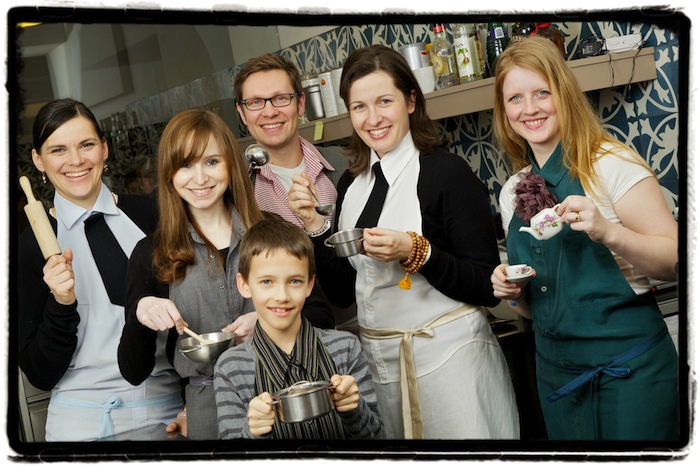The Good Tribe's Zero Waste Research in the making

Zero Waste may sound visionary, almost utopian – but we believe it can become reality – again. Yes, that’s right – there was a time in the history of mankind were there was literally no waste at all. Following Ulrich Grober, author of “Die Entdeckung der Nachhaltigkeit” (roughly translates to “The Discovery of Sustainability”), almost everything was used up entirely, almost nothing was left over or discarded as something that has no value.
Up until the beginning of the fossil period and the age of industrialization the flow of materials was – if you will – a closed loop. All materials taken from nature went back to nature. In case you say that’s romanticizing, as the old ages displayed environmental problems as well – of course, but keep in mind that those were problems on a significantly lower scale and that we’re talking about the flow of material here.
Then humanity discovered the great power of fossil fuels and industrialization set in. Don’t get me wrong, industrialization has got some merits. The steep technological development, the provision of goods and services to many people at affordable prices, and a huge increase of wealth to the benefit of a large number of people is a nice outcome. Most of us live longer and are healthier than our ancestors would have ever imagined. Many of us have an abundance of possibilities at our command – almost instantly and 24 hours a day.
But – and you could have guessed there’s a “but”, couldn’t you – at some point we lost control. This repetitive, expanding pattern of take-make-waste to fuel economic growth and ensure our quality of life kept many of us busy and quite a few of us apparently happy for quite a while. However, today we seem to have reached a dead end. Despite our ongoing and unchanged consumption patterns happiness is not increasing. Despite having access to everything all the time quality of life is not increasing. Despite incinerators and recycling all those mountains of waste are not shrinking. They’re growing and growing. Something is going awry here.
In The Good Tribe we see that the concept of Zero Waste offers a solution to some of these problems. Not only is it a “future-focused concept [...] that demands a commitment to ‘design out’ all present and future waste from the life cycle of every product, building, or system”, as Steffen Lehmann and Robert Crocker put it in their most recent book “Designing for Zero Waste”. Zero Waste is also a philosophy, a certain mindset that lets us look beyond our unsustainable consumption patterns. It urges us to reconsider if we really need this next and next and next piece of whatever it is we believe we must have so urgently by confronting us directly with the “true material realities of our present crisis and its growing list of devastating consequences” (Lehmann, Crocker).
If you want to learn more about Zero Waste, check out our first research paper titled “What is Zero Waste?”, which we will present May 14 at our ZeroWasteFest! discussion and networking event “Zero Waste Design Thinking in Business”. The paper will also be made available for download. The photo above is from our preparation for ZeroWasteFest!.
If you want to start digging deeper and learn more about sustainability, zero waste, and what you as an individual can do to become more sustainable, here’s some literature we can recommend to start with: • Steffen Lehmann and Robert Crocker, “Designing for Zero Waste”, Routledge (in English only) • Ulrich Grober “Die Entdeckung der Nachhaltigkeit”, Verlag Antje Kunstmann (in German only) • Leo Hickman “A Life Stripped Bare: My Year Trying to Life Ethically”, Eden Project Books (in English, also available in German under the title “Fast Nackt: Mein abenteuerlicher Versuch ethisch korrekt zu leben” via your local/online bookstore)
Michael Bauer-Leeb
Photo: Rupert Pessl
